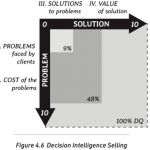Solutions to the Care Crisis: How Social Enterprises and Impact Investing Can Transform the Care Economy
If it wasn’t clear before the COVID-19 pandemic, it is now: The care economy is central to our society’s well-being, and to the broader economy.
The care economy refers to paid and unpaid care provided to people like children, the elderly, and those with illnesses or disabilities. It also encompasses activities such as cleaning, cooking, laundry, fetching water and fuel, and other household maintenance tasks.
Unfortunately, COVID-19 lockdowns have exacerbated the burden of unpaid care work, as school shutdowns forced children to study from home, under their caregivers’ supervision. The pandemic has also revealed and worsened the challenges that were already facing care economy workers. Despite the importance of care work, care jobs are often low-paid, insecure, informal, without benefits, and subject to discrimination and unsafe conditions, as shown in a 2018 report from the International Labour Organization (ILO). These conditions illustrate the lack of recognition and support these workers receive from society and the overall economy – a situation that has reached crisis proportions under the added stress of the pandemic.
Much of this burden falls upon women. According to the ILO report, across the world, women and girls are performing more than three-quarters of the total amount of unpaid care work, and two-thirds of care workers are women.
For women who enter the workforce, the unfair gender-based allocation of unpaid domestic work leaves them with little or no discretionary time. When unpaid care work is combined with income-generating activities, this creates what is known as time poverty.
The drudgery of unpaid care has resulted in subtle, yet very powerful barriers to women’s economic empowerment, preventing both households and the broader economy from tapping into women’s full potential – particularly among the most marginalized, who are hardest hit by the ongoing care crisis.
Emerging innovation in the care economy
On a more positive note, countless social enterprises and other innovative, purpose-driven and market-based solutions are emerging around the world in response to unmet care economy needs. For instance, Kidogo, a social enterprise based in Nairobi, uses a franchising model to support roughly 140 microbusinesses owned by “Mamapreneurs,” which provide quality, affordable childcare for nearly 3,000 children in 12 informal settlements across Kenya. The company also provides training and mentoring to caregivers to improve their skills.
The online platform, Zolvers, takes a different approach. It matches customers seeking domestic, cleaning, maintenance, and child- and elder-care services for their homes and offices with trained, background-checked workers. Operating in Argentina, Chile, Colombia and Mexico, Zolvers offers customers ease and security, while providing domestic and care workers with decent jobs, along with access to training programs, financial inclusion and government social security programs.
Impact investing can speed up the transformational potential of these types of businesses by providing them with necessary capital – but funding isn’t the only type of support they need. The following steps can guide the public, non-profit and business sectors in transforming the care economy into a sector that reduces, recognizes and redistributes unpaid care work, while rewarding both paid and unpaid care workers.
A Roadmap to Transform the Care Economy in the Global South
Six steps are important in transforming the care economy, particularly in the Global South:
1. Invest for impact in the care economy: Many purpose-driven care economy businesses are instilling hope in emerging economies around the world. Support for these businesses also fosters entrepreneurial opportunities for women, who dominate the sector.
Yet to date, these vibrant enterprises are only receiving limited public and private investment flows. To achieve their full potential impact, purpose-driven care enterprises need capital – whether it comes from government pandemic recovery packages, private investment, blended public and private finance or other sources.
Some funders are responding to this need. For instance, the Open Society Foundations have made investing in care work a priority in their investing arm, the Soros Economic Development Fund. The fund wants to demonstrate the investability and long-term potential of the care economy, and draw more investment capital (and attention) to the field. One of its goals is to achieve positive improvements in the lives of care workers, whether they do unpaid work in their own homes or face inequalities and vulnerabilities as domestic workers in other people’s homes. But more capital is needed: The more funders who join in these sorts of efforts, the faster the transformation in the care economy will progress.
2. Accelerate and scale market solutions for a fairer care economy: To access capital, emerging purpose-driven care enterprises need to strengthen and grow their businesses. To become investable, these businesses require support for incubation and acceleration, and to enhance their inclusion in value chains.
In response, UNWomen in Asia has recently developed a care accelerator to promote women-led and/or women-impacting enterprises in order to build innovative, market-based solutions for the care economy. More initiatives of this nature would provide a substantial boost to the entrepreneurs working to get their care economy businesses off the ground.
3. Strengthen rights and promote care workers’ voice and agency: Whether they are employed in childcare centers, clinics or households, care workers ought to have decent jobs. Greater representation and organization are crucial for these workers to be able to claim their rights and improve their employment conditions in the care economy.
There is an important history of women domestic workers organizing for recognition, better job quality and social protection, represented globally by the International Domestic Workers Federation. In India for example, domestic worker organizations were successful in establishing minimum wages for care workers in several states, and in having domestic workers included in the Sexual Harassment of Women at Workplace Act. While there is still a long way to go, particularly for migrant domestic workers, collective organizing has led to advances, and its potential needs to be harnessed.
4. Integrate infrastructure and care: Private investors are attracted to the scale, hard assets, future cash flow and, usually, government backing of infrastructure projects. When planned intentionally, these projects can also help to reduce the time and effort needed for care work.
A report by the Organisation for Economic Cooperation and Development states that essential services and community-based infrastructure providing fuel, water, food processing, clean energy and transportation can have a positive impact on women’s unpaid care burden. These services can reduce the drudgery of unpaid care work, increase women’s free time and income, and improve their quality of life.
However, as a 2018 study from Oxfam has shown, in the case of infrastructure and time- and labour- saving technologies, even if women experience reductions in time spent on some domestic activities (e.g., collecting water), they might redistribute this time to other caregiving activities, especially if public care services are not accessible. Therefore, these time-saving efforts might not actually reduce or redistribute the overall time women are dedicating to care – nor help address the time poverty they’re experiencing. To avoid this, investments in infrastructure and technology need to proactively adopt a gender lens to improve gender equality and to contribute to changing the division of labour. There is growing recognition among blended-finance platforms like Convergence and the Private Infrastructure Development Group of the importance of applying a gender lens to the design and operations of infrastructure projects – an awareness that must continue to spread to more funders.
5. Enhance public oversight and investment: The deficiencies in long-term care exposed during the pandemic have illustrated the critical role of regulatory frameworks and public oversight in the care economy. For instance, scandals unfolded across developed countries, including the United States, the United Kingdom and France, as these facilities proved to be woefully underprepared to protect both residents and staff from the virus. In Ontario, Canada a public inquiry looked into the toll of COVID-19 on long-term care homes, finding that the prevalence of precarious, part-time contracts for staff contributed to these deficiencies.
There is a need for more proactive and thorough regulator engagement in care businesses to enable care workers to thrive, and to ensure that beneficiaries receive quality services. Governments ought to oversee the transformation of the care economy – while also leveraging the private sector’s resourcefulness through public-private partnerships, including through innovative finance models. More public investment in the care economy is critical for systemic change, and to support the reduction and redistribution of care responsibilities in a way that shifts social norms around care.
6. Promote comprehensive care systems: According to a recent evidence review of the global childcare crisis and the road for post-COVID-19 recovery and resilience, as of February 2021, only 8% of global economic responses had addressed unpaid care, including childcare, and two-thirds of countries had enacted no measures whatsoever. This inaction cannot continue.
The pandemic is an opportunity to build comprehensive care systems, which ensure access to care for the people who need it most, and guarantee basic rights for the service providers. The goal is to build a model of care in which responsibility is shared between families, the government, the community and the market. There are important innovations from the Global South that can provide guidance for this sort of approach, such as the comprehensive care system Uruguay built, based on the foundational principles of care as a universal right and gender equality as a cross-cutting principle.
Action-Research for a Transformative Care Economy
To support the ongoing transformation of the care economy, Canada’s International Development Research Centre (IDRC) and the Soros Economic Development Fund have launched an action-research initiative. The goal is to build the knowledge and evidence base for mobilizing private and public capital and enhancing impact investing for a transformative care economy in emerging markets.
This program will include local market analysis and case studies, impact assessment, business incubation and acceleration, research on regulatory frameworks and policies, and industry-policy dialogues.
With our organizations’ extensive network of researchers across the Global South, and our proven ability to broker relationships among universities, think tanks, governments, companies and impact investors, we are actively seeking like-minded funding partners and impact investors to jointly promote this important agenda.
Learn more about how IDRC and the Soros Economic Development Fund are catalyzing a fairer, more resilient care economy through social enterprises and impact investing and join us here: https://www.the-care-economy-knowledge-hub.org/
Carolina Robino is Senior Program Specialist, Flaubert Mbiekop is a Senior Program Specialist and Gillian Dowie is a Senior Program Officer at Canada’s International Development Research Centre (IDRC); Edward T. Jackson is President of E. T. Jackson and Associates Ltd.; Kieran Carty is a Senior Associate and Anuradha Shetty is a Principal at the Soros Economic Development Fund.
Photo courtesy of Solidarity Center/Kate Holt.
- Categories
- Investing, Social Enterprise, Transportation



